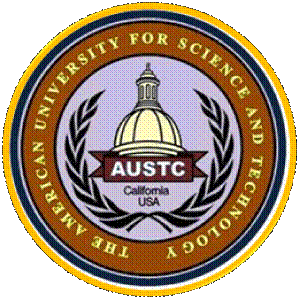ABOUT
ACADEMIC
TEXTBOOKS
ONLINE RESOURCES
STUDENT STATUS
Accreditation in the United States of America
The United States has no federal Ministry of Education or other centralized authority exercising single national control over post secondary educational institutions in this country. The states assume varying degrees of control over education, but, in general, institutions of higher education are permitted to operate with considerable independence and autonomy. As a consequence, American educational institutions can vary widely in the character and quality of their programs.
In order to insure a basic level of quality, the practice of accreditation arose in the United States as a means of conducting non-governmental, peer evaluation of educational institutions and programs. Private educational associations of regional or national scope have adopted criteria reflecting the qualities of a sound educational program and have developed procedures for evaluating institutions or programs to determine whether or not they are operating at basic levels of quality.
|
Types of Accreditation There are two basic types of educational accreditation, one referred to as "institutional" and the other referred to as "specialized" or "programmatic." Institutional accreditation normally applies to an entire institution, indicating that each of an institution's parts is contributing to the achievement of the institution's objectives, although not necessarily all at the same level of quality. The various commissions of the regional accrediting agencies, for example, perform institutional accreditation, as do many national accrediting agencies. Specialized or programmatic accreditation normally applies to programs, departments, or schools that are parts of an institution. The accredited unit may be as large as a college or school within a university or as small as a curriculum within a discipline. Most of the specialized or programmatic accrediting agencies review units within an institution of higher education that is accredited by one of the regional accrediting agencies. However, certain accrediting agencies also accredit professional schools and other specialized or vocational institutions of higher education that are free-standing in their operations. Thus, a "specialized" or "programmatic" accrediting agency may also function in the capacity of an "institutional" accrediting agency. In addition, a number of specialized accrediting agencies accredit educational programs within non-educational settings, such as hospitals. Note: The U.S. Department of Education does not have the authority to accredit private or public elementary or secondary schools, and the Department does not recognize accrediting bodies for the accreditation of private or public elementary and secondary schools. However, the U.S. Department of Education does recognize accrediting bodies for the accreditation of institutions of higher (post secondary) education. If an accrediting body which is recognized by the Department for higher education also accredits elementary and secondary schools, the Department's recognition applies only to the agency's accreditation of post secondary institutions. Recognition of accrediting agencies does not extend to the accreditation an agency may grant to foreign institutions or programs. |
Accreditation does not provide automatic acceptance by an institution of credit earned at another institution, nor does it give assurance of acceptance of graduates by employers. Acceptance of credit or graduates is always the prerogative of the receiving institution or employer. For these reasons, besides ascertaining the accredited status of a school or program, students should take additional measures to determine, prior to enrolment, whether their educational goals will be met through attendance at a particular institution. Those measures should include inquiries to institutions to which transfer might be desired or to prospective employers. Even though, some employers including the governmental agencies of the state of California, prefer graduates from accredited universities.
Many governmental agencies in the United States of America including the state of California have a policy to fill their governmental positions with graduates of accredited institutions only.
Private sectorís employers prefer graduates from accredited universities; while they actually donít care much as long as the degree holder can proof that he has the required knowledge and training for the job.
Professional licensing agencies may accept degrees obtained from state approved universities as qualification for licensing to practice. Business sector and international employers do not care much about degree accreditation as long as the hired employee has the ability to do the job. Some employers including government agencies at the state of California prefer graduates from accredited universities.
|
Starting January 2015, every university in the state of California shall be required to provide and evidence of being accredited or in process for accreditation. The American University for Science and Technology is not yet accredited, but maintains the same quality level of academic measures applied at the regionally and nationally accredited universities. |
If studentís objective is to join or to get promoted at a governmental job in the United States of America, he/she should seek enrolment and graduation from an accredited university because state approval shall not be enough for such a particular purpose.
International students are advised to check their targeted work destinationís laws to assure that obtaining their degrees from The American University for Science and Technology shall meet their objectives.

